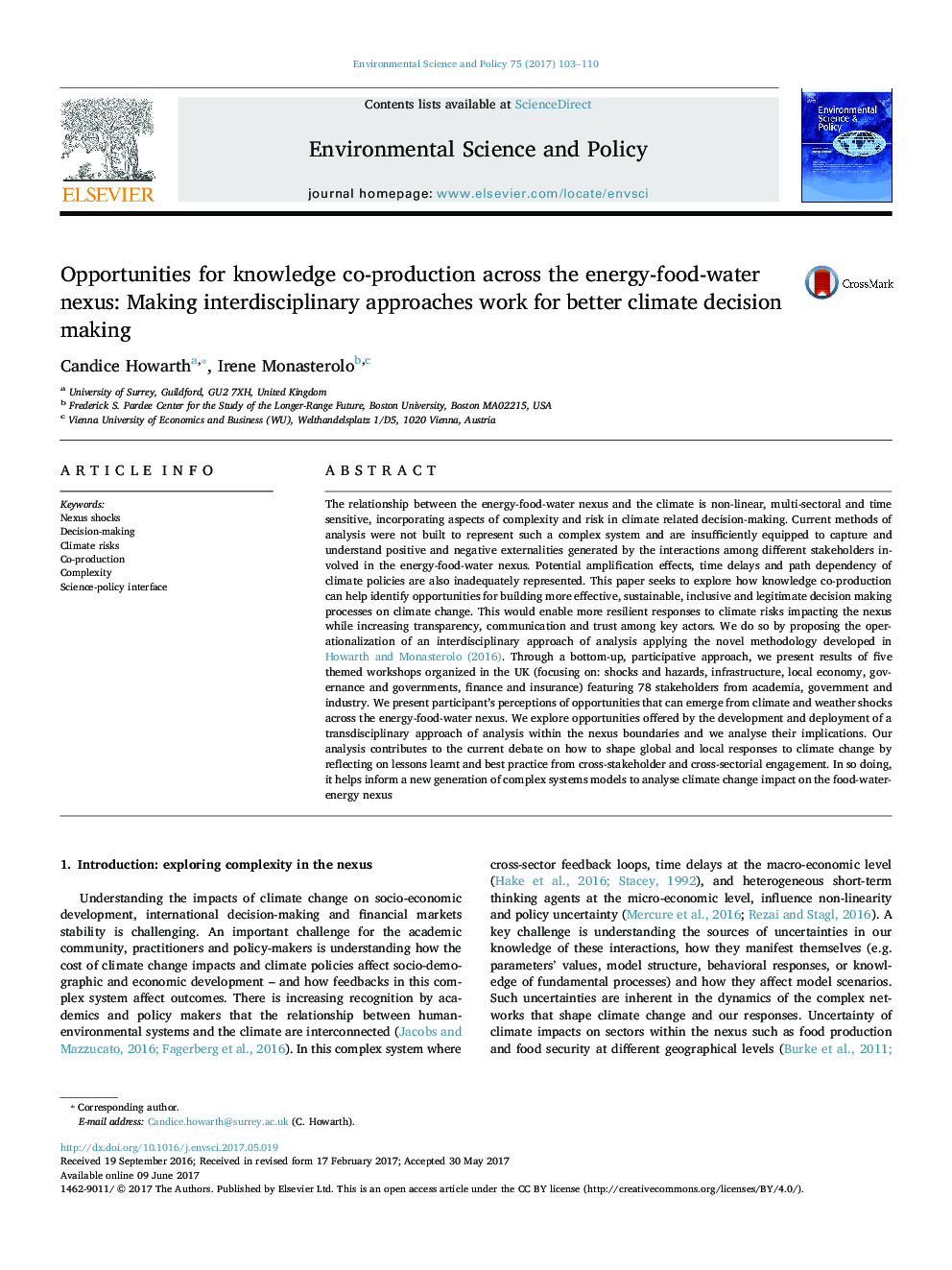| کد مقاله | کد نشریه | سال انتشار | مقاله انگلیسی | نسخه تمام متن |
|---|---|---|---|---|
| 5115798 | 1485033 | 2017 | 8 صفحه PDF | دانلود رایگان |
عنوان انگلیسی مقاله ISI
Opportunities for knowledge co-production across the energy-food-water nexus: Making interdisciplinary approaches work for better climate decision making
ترجمه فارسی عنوان
فرصت های تولید دانش در سراسر ارتباطات انرژی-غذا و آب: ایجاد رویکردهای بین رشته ای برای تصمیم گیری بهتر در مورد اقلیم
دانلود مقاله + سفارش ترجمه
دانلود مقاله ISI انگلیسی
رایگان برای ایرانیان
کلمات کلیدی
شوک نکسوس، تصمیم سازی، خطرات آب و هوا، همکاری تولید، پیچیدگی، رابطۀ علم و سیاست،
موضوعات مرتبط
مهندسی و علوم پایه
مهندسی انرژی
انرژی های تجدید پذیر، توسعه پایدار و محیط زیست
چکیده انگلیسی
The relationship between the energy-food-water nexus and the climate is non-linear, multi-sectoral and time sensitive, incorporating aspects of complexity and risk in climate related decision-making. Current methods of analysis were not built to represent such a complex system and are insufficiently equipped to capture and understand positive and negative externalities generated by the interactions among different stakeholders involved in the energy-food-water nexus. Potential amplification effects, time delays and path dependency of climate policies are also inadequately represented. This paper seeks to explore how knowledge co-production can help identify opportunities for building more effective, sustainable, inclusive and legitimate decision making processes on climate change. This would enable more resilient responses to climate risks impacting the nexus while increasing transparency, communication and trust among key actors. We do so by proposing the operationalization of an interdisciplinary approach of analysis applying the novel methodology developed in Howarth and Monasterolo (2016). Through a bottom-up, participative approach, we present results of five themed workshops organized in the UK (focusing on: shocks and hazards, infrastructure, local economy, governance and governments, finance and insurance) featuring 78 stakeholders from academia, government and industry. We present participant's perceptions of opportunities that can emerge from climate and weather shocks across the energy-food-water nexus. We explore opportunities offered by the development and deployment of a transdisciplinary approach of analysis within the nexus boundaries and we analyse their implications. Our analysis contributes to the current debate on how to shape global and local responses to climate change by reflecting on lessons learnt and best practice from cross-stakeholder and cross-sectorial engagement. In so doing, it helps inform a new generation of complex systems models to analyse climate change impact on the food-water-energy nexus
ناشر
Database: Elsevier - ScienceDirect (ساینس دایرکت)
Journal: Environmental Science & Policy - Volume 75, September 2017, Pages 103-110
Journal: Environmental Science & Policy - Volume 75, September 2017, Pages 103-110
نویسندگان
Candice Howarth, Irene Monasterolo,
